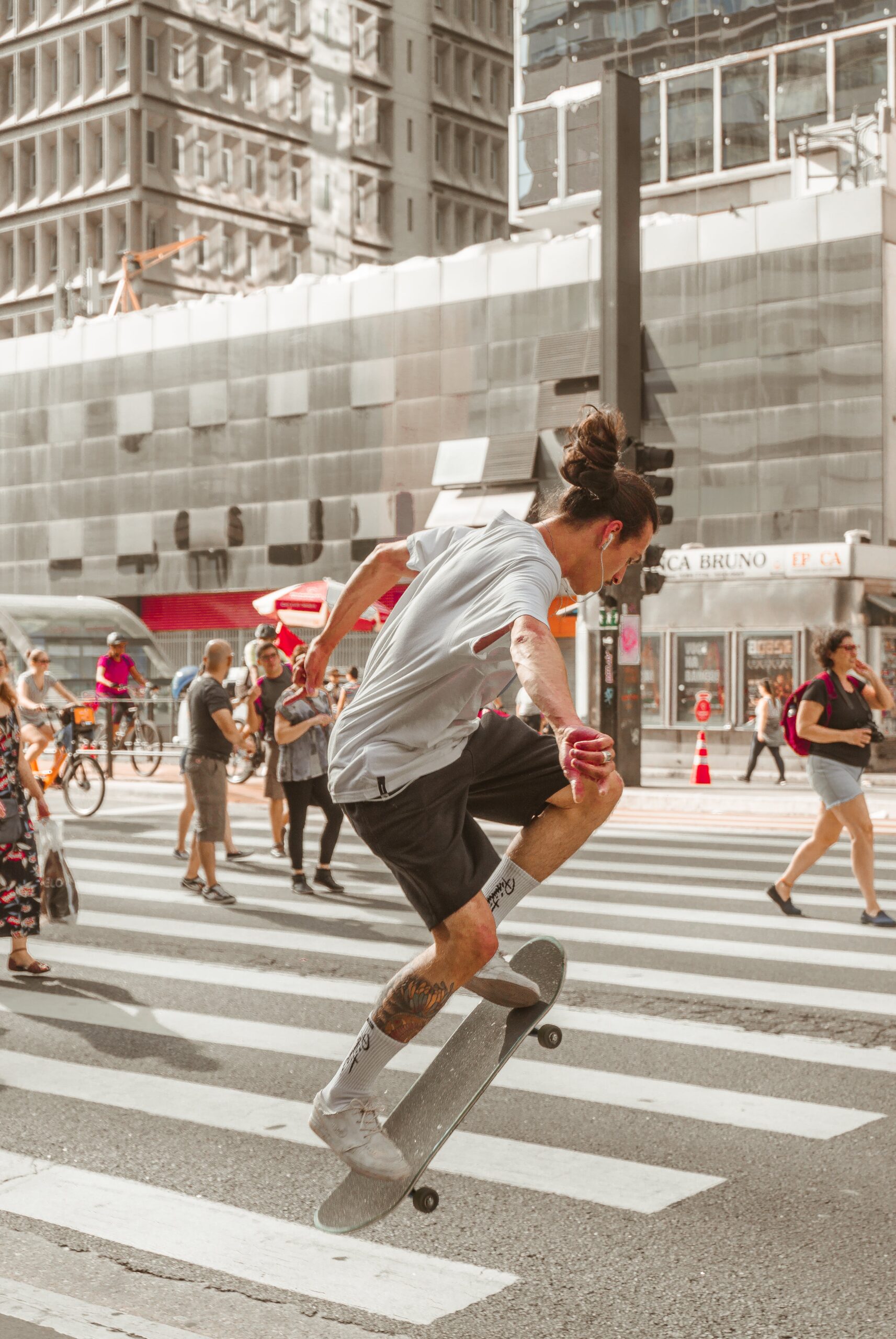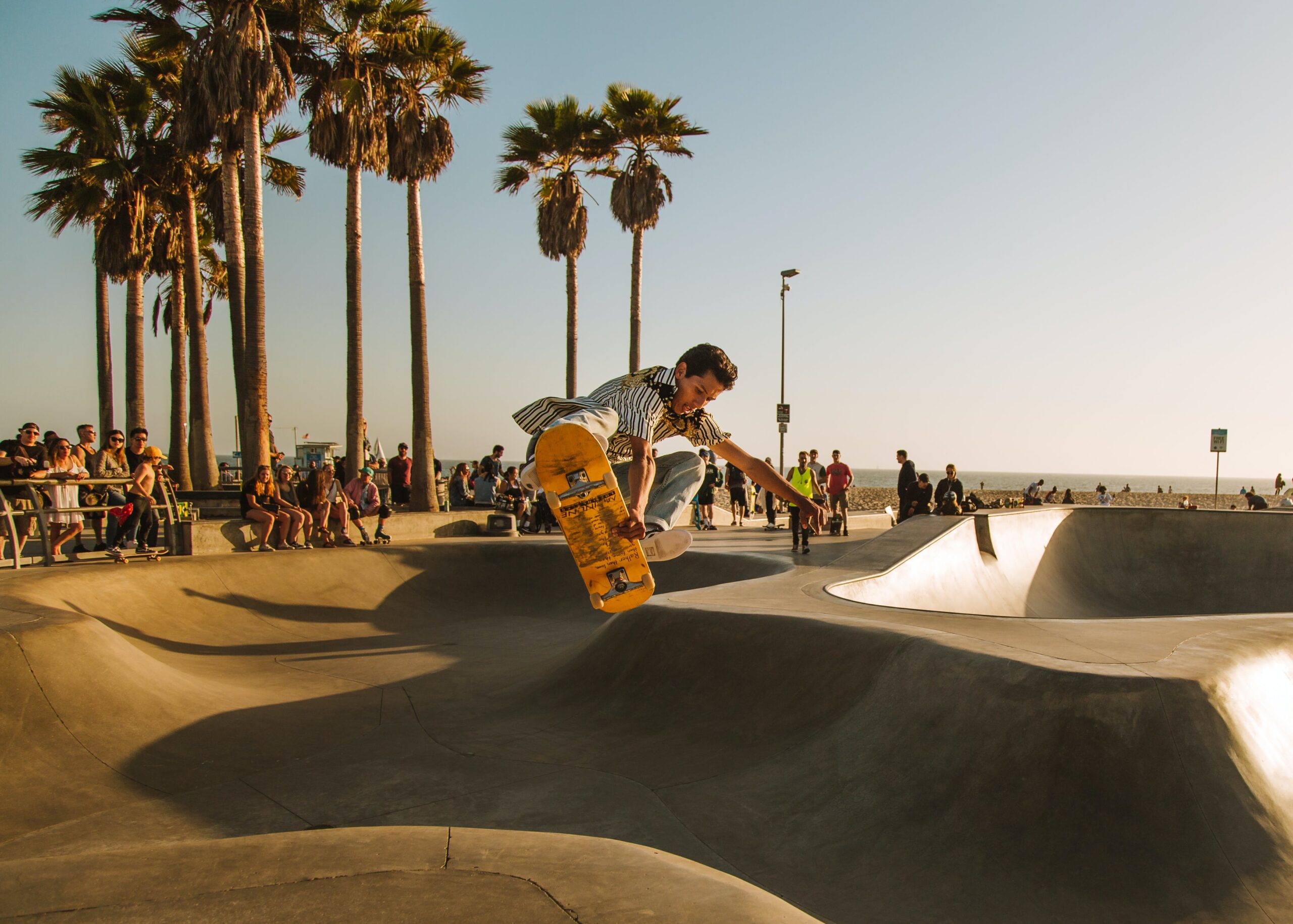If you’re a skateboarder looking to boost your confidence on the board, you’re in the right place. We all know that feeling of doubt and hesitancy when trying out new tricks or conquering unfamiliar terrain. However, by focusing on a few key strategies and adopting a positive mindset, you’ll soon be riding with newfound confidence and pushing your skills to new heights. So, lace up your shoes, grab your board, and let’s dive into the world of increasing your confidence in skateboarding. Skateboarding can be an exhilarating and thrilling sport that pushes you out of your comfort zone. As a beginner, it’s completely normal to feel a little nervous or lacking in confidence. However, with the right approach and mindset, you can build up your confidence and become a more skilled and fearless skateboarder. In this article, we will explore some valuable tips and techniques to help you build confidence in skateboarding.
Practice Regularly
The first and most fundamental tip for building confidence in skateboarding is to practice regularly. Consistency is key when it comes to improving your skills and boosting your confidence on the board. By committing to a regular practice schedule, you will gradually become more comfortable and familiar with riding, turning, and executing tricks.
To make the most of your practice sessions, it’s essential to focus on fundamental skills. Start by mastering basic riding and turning techniques, ensuring that you have a solid foundation to build upon. As you gain more confidence in these fundamental skills, gradually increase your practice time and experiment with various skateboarding techniques. This will not only help you expand your skill set but also boost your confidence as you see yourself progress.
Before diving into intense practice sessions, always remember to dedicate time for warm-up and stretching. Warming up your muscles and stretching before getting on the board can help prevent injuries and prepare your body for intense movements. By taking care of your body, you’ll feel more confident and comfortable during your skateboarding sessions.
Start with Basic Tricks
When it comes to building confidence, starting with basic tricks is a wise approach. By mastering these foundational tricks, you’ll develop a strong sense of control and balance on the board, which will significantly boost your confidence in skateboarding.
Begin by learning how to Ollie, which is the foundation for many other tricks. Practice manuals and nose manuals to improve your balance and board control. As you progress, challenge yourself to perfect kickflips and heelflips, which are essential tricks in skateboarding. Additionally, developing solid grinds and slides will not only enhance your skills but also make you feel more confident and comfortable when tackling obstacles.
Remember, it’s important to be patient and practice consistently. Building confidence in skateboarding takes time and effort, but with each small success, you’ll gain more confidence to conquer more advanced tricks.

Set Achievable Goals
Setting achievable goals is crucial for building confidence in skateboarding. Breaking down difficult tricks into smaller, more manageable steps makes them less intimidating and more attainable. This approach allows you to celebrate small victories along the way, boosting your confidence and motivating you to continue improving.
To ensure consistent progress, it’s beneficial to set both short-term and long-term goals. Short-term goals help you stay focused and motivated, while long-term goals give you something to strive for in the future. Tracking your progress is an excellent way to measure your improvement and stay motivated on your skateboarding journey.
Remember, everyone progresses at their own pace, so avoid comparing yourself to others. Skateboarding is a personal journey, and by focusing on your own accomplishments, you’ll build confidence and find joy in the sport.
Visualize Success
Visualizing success is a powerful technique to boost your confidence in skateboarding. Create a mental picture of yourself successfully landing a trick or maneuvering through a challenging skate park. Take a moment before attempting a trick to close your eyes and visualize yourself executing it flawlessly. This mental imagery can help calm your nerves, improve focus, and enhance your overall performance.
Visualization techniques can also be used to overcome fear. If you find yourself hesitant or anxious about trying a new trick, visualize yourself overcoming that fear and landing the trick with ease. This positive imagery can help replace fear with confidence and make you more likely to succeed.
Improving your focus and concentration is another benefit of visualization. By visualizing the execution of tricks in your mind, you can enhance your muscle memory and mental preparation, leading to a greater sense of confidence when attempting them in real life.

Seek Professional Guidance
While learning skateboarding on your own can be fun, seeking professional guidance can greatly accelerate your progress and boost your confidence. Taking skateboarding lessons or hiring a skater coach can provide you with valuable insights and individualized feedback to help you refine your technique and form. These professionals have years of experience and expertise that they can share with you, giving you a significant advantage in your skateboarding journey.
Joining skateboarding clinics or camps is another fantastic way to seek professional guidance. These programs are usually led by experienced skateboarders who can guide you through various aspects of the sport, from basic skills to advanced tricks. Moreover, being part of a structured program with like-minded individuals can provide you with a supportive and motivating environment to build your confidence.
Build a Support Network
Building a support network can play a crucial role in your journey to building confidence in skateboarding. Surrounding yourself with friends and peers who share the same passion for skateboarding can provide a strong sense of community and encouragement. Skateboarding with others not only makes the experience more enjoyable but also allows for constructive feedback and learning from one another’s experiences and challenges.
Joining skateboarding communities, whether online or in your local area, is another way to build a support network. These communities often provide a platform for skaters to connect, share advice, and motivate each other. Communicating with fellow skateboarders who have faced similar challenges can be highly inspiring and help you overcome obstacles with greater confidence.
Remember, a supportive network can make a world of difference, offering guidance, encouragement, and constructive feedback, all of which are invaluable in boosting your confidence.

Learn from Failures
Failure is an inevitable part of any learning process, and skateboarding is no exception. Embracing mistakes as learning opportunities is an essential mindset to adopt if you want to build confidence in skateboarding. Instead of becoming discouraged by failures, see them as stepping stones toward success.
When a trick doesn’t go as planned, take a moment to analyze what went wrong. Was it a technical error? Lack of focus or commitment? Identifying the areas that need improvement will allow you to make adjustments and try again. With each iteration, you’ll gain valuable experience and come closer to nailing the trick you’re working on.
It’s important not to let failures deter you. Accept them as part of the learning process and use them as motivation to keep pushing yourself. Remember, even the most experienced skateboarders have experienced countless failures along their journey. It’s through perseverance and learning from these failures that they have become confident and skilled in what they do.
Take Care of Your Body
Taking care of your body is crucial for both your physical and mental well-being, which directly impacts your confidence in skateboarding. Maintaining overall fitness through regular exercise helps improve your strength, endurance, and flexibility, making you feel more physically capable and confident on the board.
Including strength and conditioning exercises in your fitness routine can also enhance your skateboarding performance. Strengthening your core, legs, and upper body will not only reduce the risk of injuries but also improve your overall balance and control.
Before every skate session, remember to stretch and warm up your muscles. This step is essential to prepare your body for the physical demands of skateboarding and avoid strains or sprains. Warm-up exercises such as jogging or jumping jacks get your blood flowing and increase your body temperature, priming your muscles for optimal performance.
A healthy diet and proper hydration are also vital for maintaining a high energy level and supporting your body’s recovery process. Remember to drink plenty of water throughout the day and consume nutritious foods that provide the fuel your body needs to perform at its best.
Lastly, don’t underestimate the importance of rest and sleep. Skateboarding can be physically demanding, so make sure to give your body enough time to rest and recover. A well-rested body is more resilient and less prone to fatigue or injuries, boosting your confidence when hitting the board.
Stay Positive and Persistent
Maintaining a positive attitude and persistent mindset are essential for building confidence in skateboarding. Recognize that progress takes time, and setbacks are part of the journey. Embrace each small accomplishment and use them as motivation to keep pushing forward.
Negative self-talk can undermine your confidence and hinder your progress. Instead, focus on the improvements you’ve made, no matter how small. Celebrate each milestone and be proud of yourself for the effort you put into learning and improving your skills.
Maintain a persistent mindset by setting realistic expectations and being patient with yourself. Remember that every skater, no matter how experienced, once started as a beginner. By committing to consistent practice, embracing failures as learning opportunities, and staying positive, you’ll gradually become more confident as you conquer new tricks and challenges.
Stay Safe
While skateboarding is undoubtedly an exciting and adventurous sport, it’s important to prioritize your safety. By staying safe, you’ll have greater peace of mind, which directly translates to increased confidence when skateboarding.
Always wear appropriate safety gear such as a protective helmet, knee pads, and elbow pads. These items can provide vital protection in case of falls or accidents, reducing the risk of serious injuries. Protecting your head is of utmost importance, as head injuries can have severe consequences.
Additionally, make sure to familiarize yourself with skatepark rules and etiquette. Respecting others and following the designated rules ensures a safe and enjoyable experience for everyone. Pay attention to signage and warnings in the skatepark to ensure you’re aware of any potential hazards.
When choosing skateboarding locations, opt for well-lit and safe areas. Avoid deserted or sketchy spots to minimize the risk of encountering dangerous situations. Skateboarding in public spaces with heavy pedestrian traffic or near busy roads should also be avoided to prevent accidents involving non-skaters.
Lastly, always be aware of your surroundings. Keep an eye out for pedestrians, cyclists, or vehicles to prevent collisions. Stay vigilant and prioritize safety when enjoying your skateboarding sessions.
In conclusion, building confidence in skateboarding is a gradual process that requires commitment, perseverance, and a positive mindset. By practicing regularly, starting with basic tricks, setting achievable goals, visualizing success, seeking professional guidance, building a support network, learning from failures, taking care of your body, staying positive and persistent, and staying safe, you’ll be well on your way to becoming a more confident and skilled skateboarder. Remember, enjoy the journey, be patient with yourself, and have fun as you progress, one trick at a time. Happy skateboarding!
